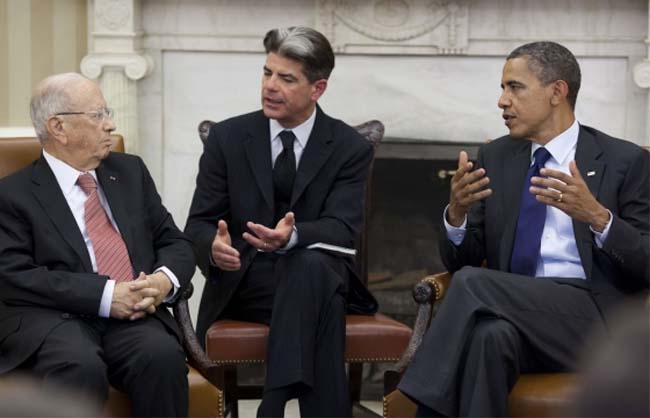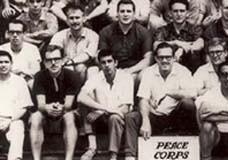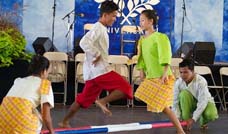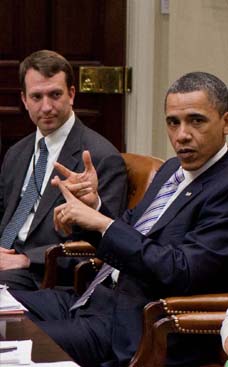
The first group of Peace Corps volunteers is scheduled to arrive in Tunisia in 2012. Volunteer assignments will focus on English language training and youth skills development. These two programs will build local capacity and help prepare Tunisian students and professionals for future employment.
Peace Corps to Re-Open Tunisia Program
President Obama Announces Re-Opening of Peace Corps Program in Tunisia
Caption: President Barack Obama holds a bilateral meeting with Prime Minister Beji Caid Essebsi of Tunisia in the Oval Office, Oct. 7, 2011. (Official White House Photo by Pete Souza)
WASHINGTON, D.C., Oct. 7, 2011 – President Barack Obama announced the re-opening of a Peace Corps program in Tunisia. This announcement was made during President Obama's meeting today with Tunisian Prime Minister Beji Caid el Sebsi, attended by Peace Corps Director Aaron S. Williams.
"We are honored that the government of Tunisia has asked Peace Corps to re-open our program in Tunisia," said Director Williams. "The return of the Peace Corps to Tunisia offers our countries the opportunity to resume a partnership with a long and productive history. This Peace Corps program will contribute to the Obama Administration's efforts to support the Tunisian people by working side by side on important education and economic initiatives."
The first group of Peace Corps volunteers is scheduled to arrive in Tunisia in 2012. Volunteer assignments will focus on English language training and youth skills development. These two programs will build local capacity and help prepare Tunisian students and professionals for future employment.
Between 1961 and 1996, nearly 2,500 Americans served as Peace Corps volunteers in Tunisia, working in the fields of agriculture, architecture, education, health, and rural and urban community development.
A fact sheet on the President's announcement is available through the White House.

















